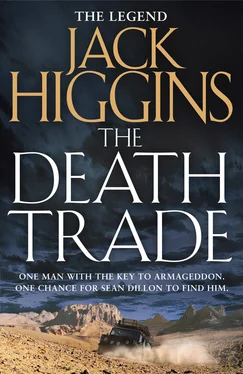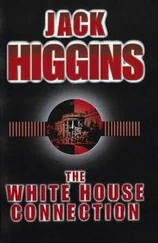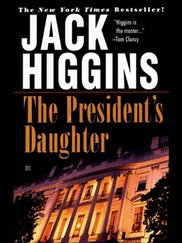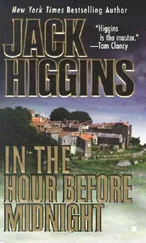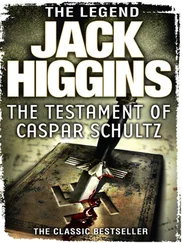Several hours later, he left the Citroën in Homs and found a taxi driver willing to deliver him to Wadi Khalid on the border with Lebanon, walking through on foot, armed with his Lebanese passport, where he bypassed a crowd of Syrian refugees.
The commander of the border post examined his passport and said, ‘See anything of the troubles in your journey, Doctor?’
‘I’m afraid so. I passed through Houla. A dreadful sight.’
‘It must be good to be home after such an experience.’
‘Yes, indeed.’ Ali LeBlanc passed through and took one of the waiting taxis.
The approach to Beirut an hour later was astonishingly beautiful: the hot sunshine, the vivid blue of the sky and sea, the harbour crowded with ships, the whiteness of the houses jumbled together as they lifted in untidy terraces, climbing the hill of the old quarter together.
He left the taxi by the harbour wall and crossed through the open-air cafés, crowded with people of every race and colour and religion and so very different from what he had come from. He climbed quickly through narrow cobbled alleys, turned into Rue Rivoli, and came to a building several storeys high that was painted a vivid blue. Not surprisingly, a sign by the door said ‘Maison Bleue,’ and he rang the bell.
The woman who answered was someone he knew. Sixty-five, of mixed blood, she was handsome enough, and wore a black silk robe and a white chador, the obligatory headscarf for Muslim women. There was astonishment on her face.
‘Is that you, Doctor? How long since we have seen you?’
‘Five years. How are you, Bibi?’
‘All the better for seeing you.’
‘And the apartment? Everything in order?’
‘Of course. Your arrangements here have never failed.’
And everything was indeed in order: the cool white-painted hall, the ancient lift that took them five floors up, the penthouse apartment with its huge living room, the terrace with the blue-and-white-striped awning and the view over the city and the crowded harbour and away out to sea. He dropped his bag on the coffee table, took off his soiled jacket, and dumped it on the floor. She moved to pick it up.
‘You look terrible, chéri ,’ she told him, and there was a certain tenderness in her voice. ‘I think you have come from a bad place.’
‘From hell on earth. I would not have believed such evil could exist if I had not witnessed it with my own eyes.’ He hesitated, then: ‘I killed a man for the first time in my life.’
She said calmly, ‘A bad man?’
‘No, a truly evil man. A murderer of women and children.’
‘Good,’ she said. ‘God has already forgiven you. Sit down and rest. I’ll bring you a coffee with something in it perhaps, run you a bath, and see what’s available in the wardrobe. What you’re wearing will go out with the rubbish tomorrow.’
He sat on the couch by the coffee table, opened the bag and explored the false bottom, taking out further packets of dollars, the Makarov pistol, and a small electronic notebook of the kind that could only be opened by a codeword. All these things he placed on the table, and last of all, he produced a mobile phone that looked like any other but definitely was not. It had unlimited range, a battery that never needed charging. With the press of a button, it was impossible to trace, and he did that now and entered the code of the person who had provided him the phone. She answered immediately, sounding breathless.
‘You didn’t block your location,’ she said. ‘I can see you’re in Beirut. Did you mean to do that?’
‘No, I was careless,’ he replied. ‘I didn’t expect to have to use the phone you gave me in Paris so soon. Where are you?’
‘London, Hyde Park. So tell me, what’s happening?’
‘I’ve done it. I’ve left Iran, left the nuclear facility. The nuclear bomb they’ve had me working on – in theory, it’s ready to produce, but they’d still need me to supervise the construction. I couldn’t stay any longer. I fled to Beirut, and I’m using an alias. They’ll come after me when they find there’s nothing on the computers.’
‘You tried to wipe your research?’ she said. ‘But they can still find it. There’s nothing that can’t be recovered these days.’
‘I know, but it’ll slow them down. And I never put the most important data on the computer in the first place. All my calculations were worked out on paper and then destroyed.’
‘But what about your mother and daughter? Your masters put them under house arrest to ensure your obedience.’
He was silent for a long moment. ‘No more. After Vahidi and I flew back from Paris, he disappeared. When he didn’t rejoin me at the nuclear facility, I asked questions, but nobody would tell me anything. Then I got an anonymous phone call. Apparently, he was driving them to an appointment when their car was hit. My mother, my daughter, they’re dead. Vahidi’s in a military hospital in serious condition.’
‘Oh my God,’ she said. ‘Oh, I’m so very, very sorry. That’s terrible. And you mean to tell me the authorities are putting a lid on it? How stupid. They can’t keep that up for long. I wonder what they’ll do.’
‘I didn’t stop to find out. I’ve been making preparations for years, false passports and money, in the hope that something would come up, although not something as dreadful as this. I left in the middle of the night, but obviously they’ll be after me.’
‘So you haven’t left anything at all that could lead to a computer trail?’
‘It’s all in my head, I told you.’
‘Which means they’re going to try very hard to get hold of you.’
‘Then I’ll have to see that they don’t.’
They talked for a few minutes more, then he hung up.
Bibi, who had been standing behind the room screen listening with a frown, a striped towel over her arm, now smiled and entered.
‘I’ve run a bath for you. You’ll feel much better after a nice long soak.’
He smiled. ‘You’re right.’
‘I always am.’ She ushered him into the bathroom, then came out again, closing the door.
A fantastic story. She’d always liked Ali LeBlanc. He was a decent man who’d looked after her well over the years, but what she’d overheard was too good to keep to herself, and there might even be money in it.
But who should she tell? The Army of God charity on the waterfront was a front for Al Qaeda, everybody knew that. There was the Café Marco next door. Its owner, Omar Kerim, was a genial thief interested only in money; his underlings were constantly stealing it for him all over Beirut. She knew him well, had once worked for him.
She made her decision, went into the kitchen, found a large linen shopping bag, and called, ‘I’m just going out to the market. I’ll be back soon.’
She stepped into the lift and went down, while in the bath, head raised and slightly turned, Ali LeBlanc slept.
TWO WEEKS EARLIER
The wind roared as waves crashed in on the shore of the Nantucket beach but failed to drown the sound of the helicopter as it landed up at the house.
Former President Jack Cazalet said to his Secret Service man, Dalton, ‘Have General Ferguson brought straight down.’
Dalton nodded, mobile phone to his ear, and Cazalet turned to meet the demands of his cherished flatcoat, Murchison. He picked up another stick to toss into the sea, and it was instantly retrieved and dropped at his feet as the jeep braked and Major-General Charles Ferguson emerged.
‘The salt is bad for his skin, Mr President, he’ll need a good hosing. I’ve said that a few times over the years.’ He held out his hand.
‘So you have, old friend,’ Cazalet told him. ‘Which can only mean that Murchison is getting a bit long in the tooth. You can cut out the title, by the way – there can only be one Mr President.’
Читать дальше
